Gastrointestinal stasis is a condition in rabbits whose stomachs and intestines are weakened. As a result, the normal bacteria in the digestive tube are set off balance. A bunny with gastrointestinal problems can quickly become phlegmatic and weak. Read more about GI stasis rabbit: symptoms, causes, treatment, recovery, cost, prevention.
Symptoms of gastrointestinal stasis in rabbits
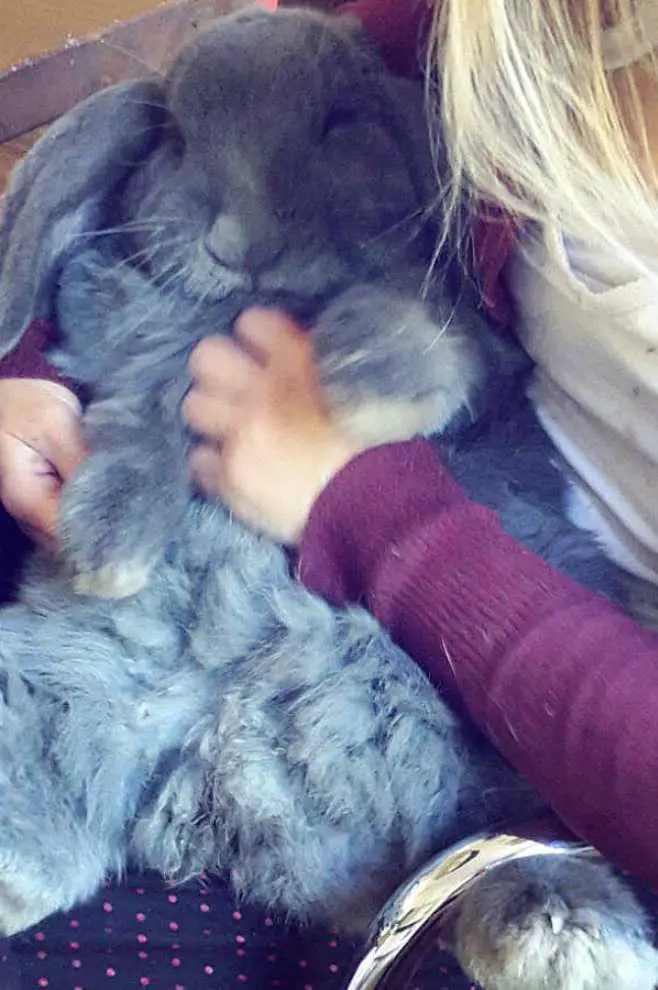
An early symptom of gastrointestinal stasis occurs when your rabbit weakens. They stop eating and drinking because they are losing or lacking appetite. Because of the lack of appetite, it may experience a small amount of droppings. It may also have no production of fecal or small fecal pellets.
However, rabbits’ watery poop may not always be diarrhea. Instead, these droppings can be unformed, almost liquid cecotrope. Cecotrope is a substance that provides nourishment and dietary items. Therefore, it is essential for the maintenance of the life of rabbits. But it is better to consult a vet if your pet is excreting these poops frequently.
Also, rabbits may go through abnormal drowsiness, and they begin to bend over because of pain.
Causes of Gastrointestinal stasis in rabbits
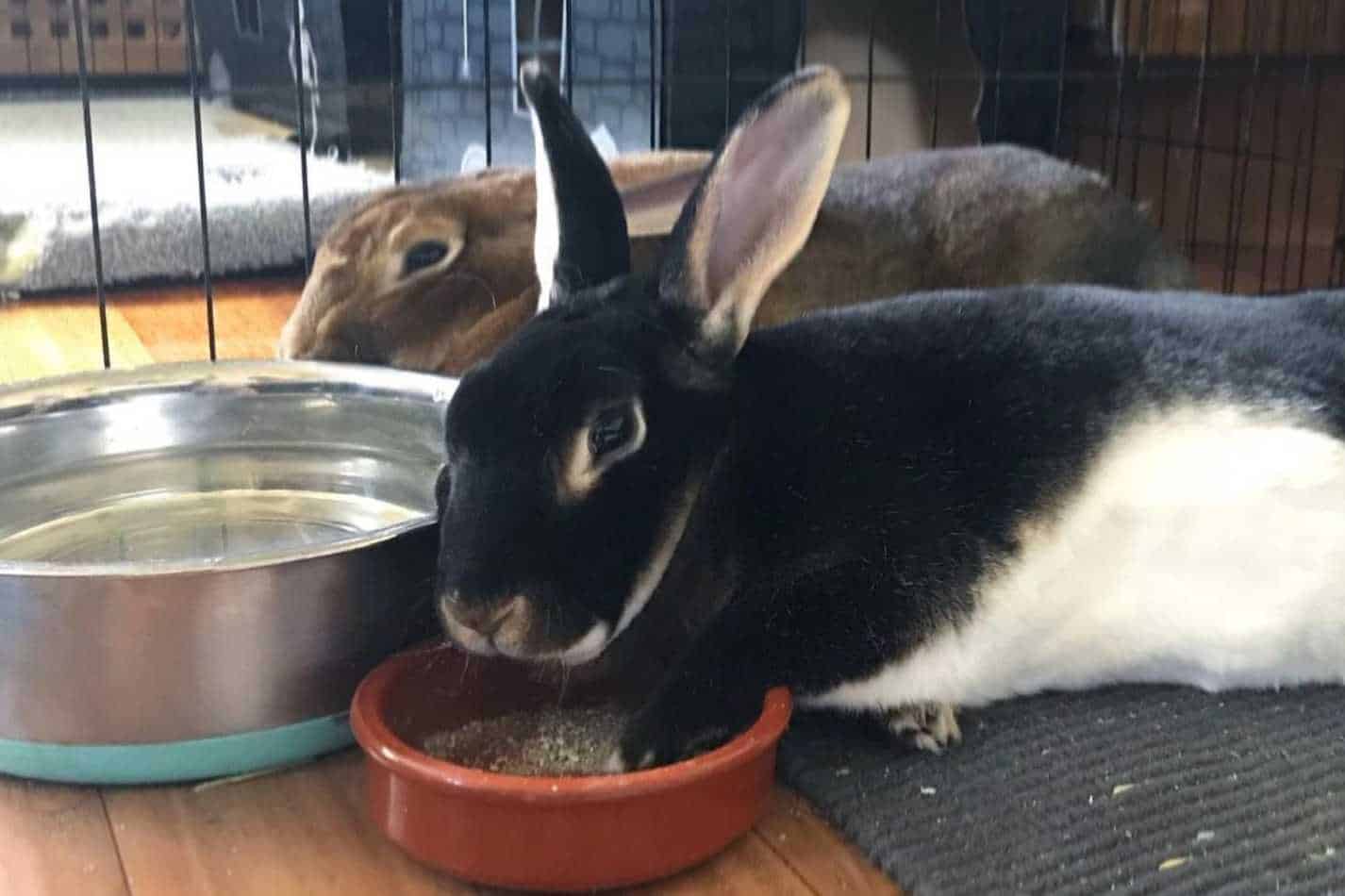
There are many possible causes of rabbits’ gastrointestinal stasis or digestive problems. Here are some of the reasons:
Low fiber diet
Rabbits require a high fiber diet for their intestines to work correctly. Since they have weak digestive systems, they need fibers to aid the digestion of food. They must have at least 18% to 22% of high-fiber in their diet. Timothy grass hay should be given to them regularly.
Stress
When rabbits notice some changes in their environment, they experience stress. For example, instead of enjoying their new home, they plan to escape away from their predators. They also experience stress when their rabbit’s companion is lost or has died.
Once a rabbit becomes too stressed, it will stop eating food, soon leading to GI stasis. If not given immediate medical attention, it may lead to death.
Lack of exercise
Exercise is essential for rabbits, both young and old. By exercising, their bone structure becomes healthy. When they don’t get enough exercise, they will feel bored and eat a lot of food, making them obese or overweight. In addition, rabbits are more prone to GI stasis if they are overweight.
Pain
Dental problems and kidney disease result in the rabbits’ lack of appetite. Because of the pain experienced, they started to bend over and feel the pain continuously. It may have caused them to forget to eat. Once they stop eating, GI stasis may begin to develop.
Treatment
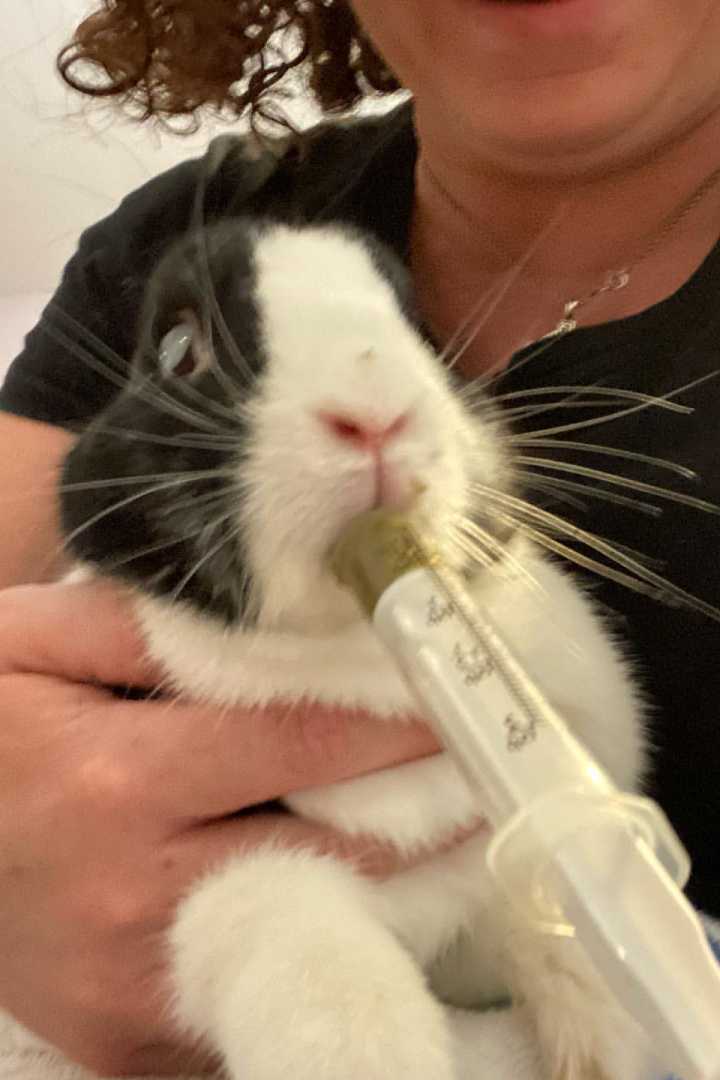
There are various types of treatment for gastrointestinal stasis. But it will depend on the severity of the cases. The veterinarian must also prescribe it.
Hay
Rabbits should eat hay grass because it is rich in high- fiber. In addition, it helps for the stimulation and motility of their digestive tract.
Hand feeding
It is also called force-feeding. This method is needed for those rabbits who have the condition of being lazy and having no appetite to eat. Liquid hay with a syringe is recommended for those rabbits that do not eat completely.
Pain relief
Relieving the pain is essential to prolong the life of rabbits. A common sign of pain is when they bend over. If your pet is suffering from inflammation, you can administer non-steroidal anti-inflammatory drugs. Examples of these are aspirin, meglumine, and carprofen.
Gastrointestinal motility drugs
These medications can help restore the stomach and intestines function. They work by improving the food movement. Some of the safe GI motility drugs for rabbits are cisapride and metoclopramide. In addition, if your rabbit has gas in its stomach, simethicone decreases the amount of gas.
Fluid therapy
For dehydrated rabbits with electrolyte imbalances, fluid therapy is crucial. Rehydration is one of the most critical aspects of treatment. You can get a syringe, put a little water on it, and then put it into your rabbit’s mouth. Another way of rehydrating your pet is by giving fruit high water content. But make sure that it’s part of your rabbit’s regular diet.
Treatment of other underlying medical problems
If your pet is suffering from a medical problem, you must treat it immediately since it can result in GI stasis. But, first, go to the vet and ask for the right medicines and procedures to administer to your rabbit.
Rabbit’s recovery from gastrointestinal stasis
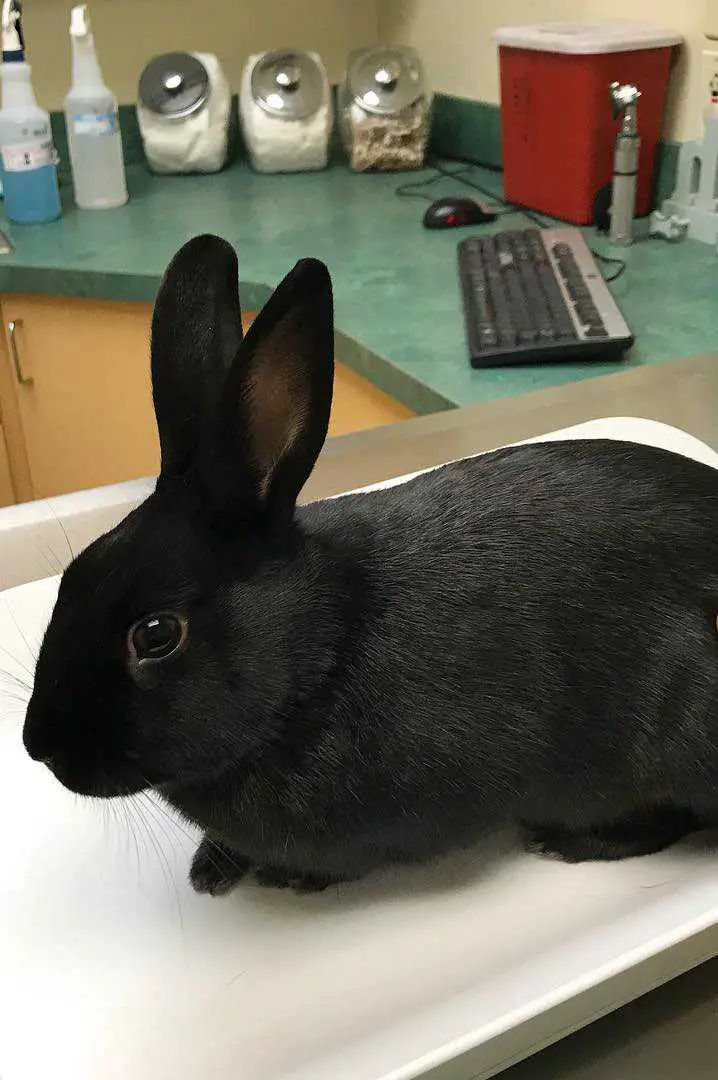
After the rabbit’s treatment, the next step is for recovery or return to a state of everyday health. Recovery of rabbits takes days, weeks, or a month depending on the treatment. The most effective way of curing rabbits of GI stasis is prevention. Your rabbits must get high-fiber from fresh hay grass. Plus, make sure your rabbits drink enough water to prevent dehydration.
The most common effect of gastrointestinal stasis to rabbits is a slow loss of appetite. A decrease follows it in fecal production. Many rabbits will stop eating the first pellets, leafy greens, and treats. They will show a declining appetite over a two to seven-day period.
Cost to treat a rabbit with GI stasis
GI stasis is not only a severe condition, but it is also a common digestive disease in rabbits. Medication can cost between $150 and $200. If your rabbit needs to be hospitalized, you may spend several hundred dollars. On the other hand, surgery can cost thousands of dollars.
If your rabbit suffers from complications, you may spend about $2,000. But unfortunately, GI stasis is an expensive illness to treat. So instead of paying for treatments, preventing the disease is a lot cheaper.
Preventing GI stasis to your rabbit
To prevent GI stasis in rabbits, provide high-fiber foods such as vegetables and fresh hay. Rabbits must eat fresh hay or dried grass since they supply the suitable fiber that the rabbits need. Give them in the period between the day and the night.
Since hay is rich in fiber, it maintains excellent digestion in the stomach and intestine. Also, it helps the rabbits’ growing teeth to be even. As a result, it prevents them from becoming longer, leading to dental problems.
When giving these to your rabbit, make sure to wash them in clean water. Giving rabbits clean foods is essential since they have sensitive digestive. Aside from that, ensure that your rabbit is not experiencing pain and stress. These factors decrease the motion of the stomach and intestine.
If undergoing potentially painful procedures, the use of analgesics should be considered. In addition, housing and handling must be done with caution to decrease stress.
Early detection of clinical signs suggestive of digestive tract stasis is dangerous. But immediate management with pain relief, nutrition, and fluid therapy can prevent death.
Also, supervise your rabbit for physical exercise to push normal digestive system movement. Training makes their bones stronger and more healthy, especially for adult rabbits. Finally, prevent your rabbit from chewing items that cause trouble to its digestion.
When they feel bored, rabbits usually grind their teeth or gnaw everything they want to eat. It causes terrible habits and may also be dangerous for their health. So be attentive to your pet rabbits. Provide them with safe toys that they can chew and play with regularly.
To improve your pet’s digestion, you may also feed them selected fruits. However, as a reminder, give the treats in small amounts only. Also, introduce them to your rabbit gradually.
Frequently Asked Questions
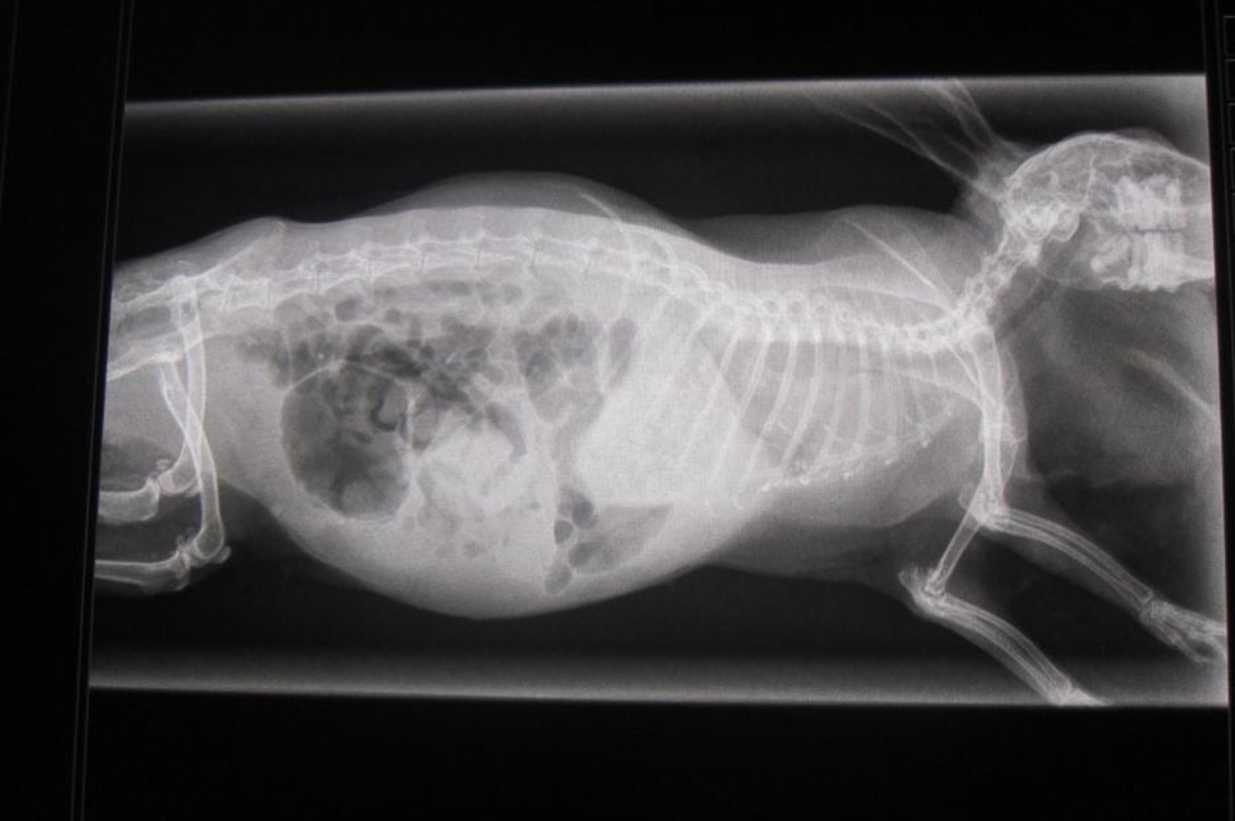
What other treatments are given to rabbits suffering from GI stasis?
If the rabbit is too weak to eat, it may need nasogastric tube feeding. A narrow tube will be inserted into the rabbit’s nose so that it can eat. Another treatment is surgery. A vet does this procedure when the rabbit is already in a critical situation.
What will I expect if I bring my rabbit with GI stasis to the veterinary clinic?
The vet will ask you about the rabbit’s diet and your observed symptoms. Your rabbit will also undergo a complete physical examination to check its condition. Some of the procedures are x-rays and blood tests. If your rabbit is dehydrated, the vet will administer fluids. An intravenous catheter will be attached to your rabbit.
How will I prevent my rabbit from having GI stasis?
The best way to prevent GI stasis is to provide a high-fiber diet to your rabbit. Aside from that, always give it clean water and avoid feeding your pet some sweets. You should also not give it low-fiber foods. Ensure that it has activities and bring it to the vet for a regular check-up.
Summary
Gastrointestinal stasis in rabbits is a life-threatening condition you must not ignore. Symptoms include lack of appetite and having no amount of fecal pellets. It is vital to give your rabbit a proper diet and the best care. You must know GI stasis rabbits: symptoms, causes, treatment, recovery, cost, prevention.